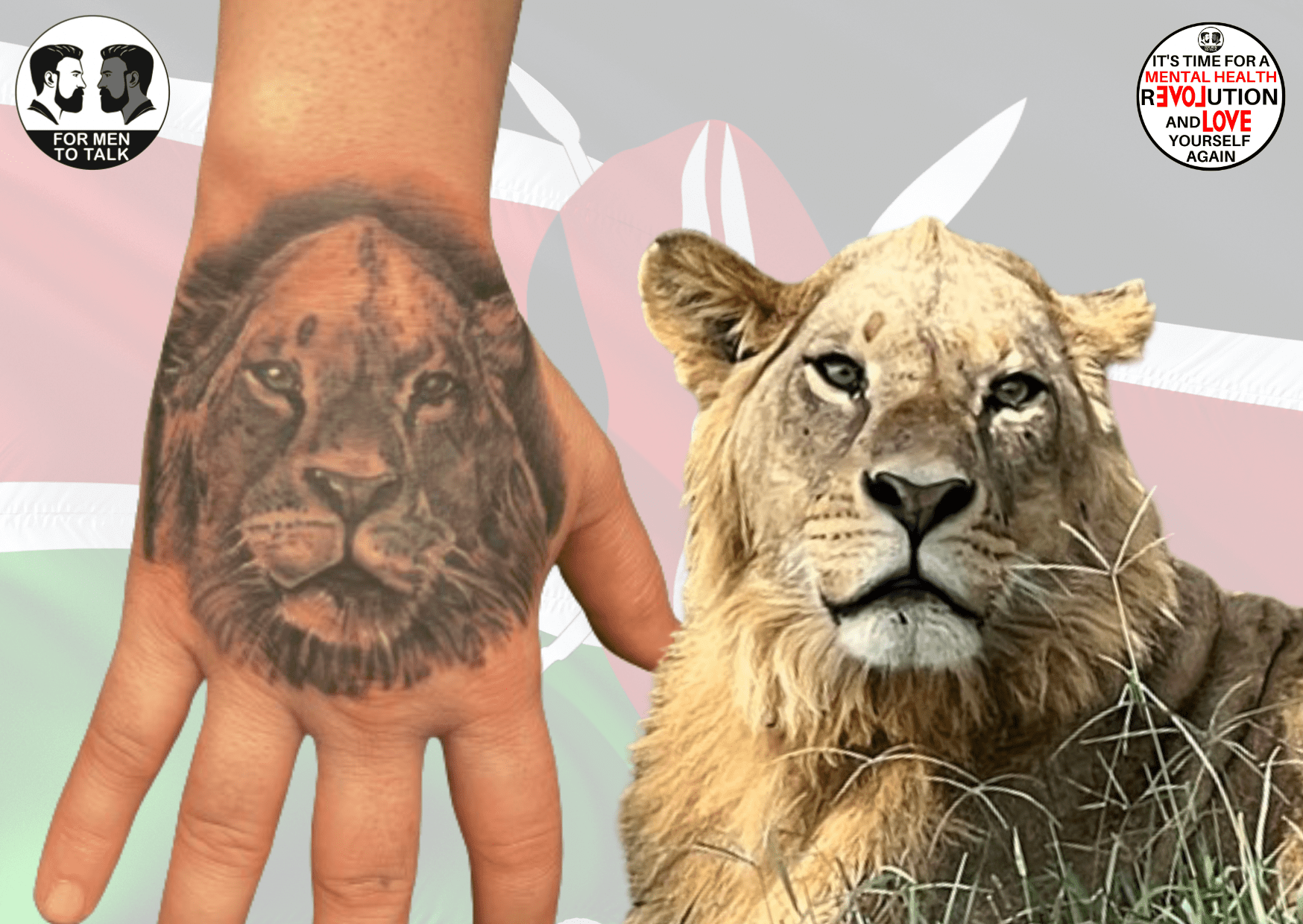The symbolic power of tattoos: Enhancing men’s mental health

In the heart of Kenya, amidst the breathtaking landscapes of Nakuru, Luke Newman is on a mission that transcends borders. Founder of ‘For Men To Talk,’ Luke embarks on annual humanitarian trips to support children living in deprived environments. Through building, renovating, teaching, and simply sharing moments of joy in schools, Luke’s commitment shines as a beacon of hope for those in need.
For eight remarkable journeys, Luke and Derby County Community Trust, with African Adventures, have poured their hearts into making a difference. With Luke’s ninth trip on the horizon in May 2024, the significance of their efforts continues to deepen.
Last year, during a visit to the awe-inspiring Lake Nakuru Safari Park, Luke was captivated by the majestic lions, among other incredible creatures like the pink flamingoes, rhinoceros, and hippopotamuses. It was amidst this wilderness that he captured a moment of raw beauty—a photograph of a lion, a symbol of strength and resilience.
Recently, Luke made a decision that would permanently etch this symbol into his life. He got a tattoo of the lion’s head on his hand—a tangible reminder of his journey, both literal and metaphorical. But beyond being a mere decoration, this tattoo holds profound significance, especially in the realm of men’s mental health.
Men, often conditioned to mask vulnerability, find solace in symbols that speak louder than words. Tattoos, with their permanence and visual impact, serve as potent symbols of personal narratives. In Luke’s case, the lion embodies courage, leadership, and the unwavering resolve to protect and nurture—qualities he channels into his humanitarian work.
But the benefits of symbolic tattoos for men’s mental health extend beyond personal reminders. They foster a sense of belonging and identity within communities. Luke’s tattoo isn’t just a mark on his skin; it’s a conversation starter, a bridge connecting him to others who share his values and passions. In a world where isolation and disconnection abound, these symbols forge bonds that transcend language and cultural barriers.
Moreover, tattoos can serve as therapeutic tools, offering catharsis and healing in times of struggle. Luke’s annual trips to Nakuru undoubtedly leave an indelible mark on his soul, confronting him with both the beauty and brutality of the world. In moments of doubt or despair, his tattoo becomes a source of strength—a silent companion reminding him of the lives he’s touched and the difference he continues to make.
In a society that often associates masculinity with stoicism, tattoos offer a canvas for emotional expression. They allow men to reclaim their narratives, weaving stories of resilience, love, and humanity into their very skin. Luke’s lion tattoo is more than just a piece of art; it’s a testament to the power of vulnerability, the beauty of connection, and the resilience of the human spirit.
As Luke prepares for his ninth journey to Nakuru, his lion tattoo stands as a beacon of hope, reminding him of the lives he’s transformed and the countless more waiting to be touched. In a world hungry for compassion and empathy, perhaps it’s time we embrace the symbolic power of tattoos as a gateway to healing, connection, and ultimately, a more compassionate society.